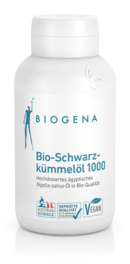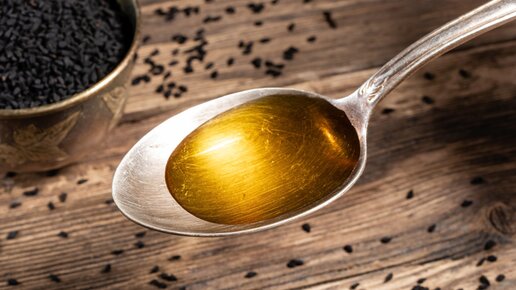Sneezing, colds, itching. If the body’s defences are launching bombs and grenades at something completely harmless, we could be in the middle of an allergy – including collateral damage. But what exactly is an allergy? And what are its causes?
What is an allergy?
Our immune defences are always on the lookout for us. Sometimes they are a bit too careful. Because whilst they busily protect the majority of us from pathogens and foreign substances, by recognising and neutralising them, the immune defences of allergy sufferers go into overdrive.
Around 20,000 allergens (allergy triggers) are now known – all substances that are actually harmless, but can trigger a pathological reaction in allergy sufferers. If allergy sufferers come into contact with allergens, and if their immune systems identify them as a “declared enemy”, an immunological crusade is embarked upon in order to remove the enemy from the body. Unfortunately, physical "collateral damage" can occur in the course of inflammatory reactions. However, unlike people’s reactions to pathogens of infectious agents, allergy sufferers never become immune to their irritant.
What is the reason for this?
Allergies are on the rise worldwide. In recent decades, diseases caused by allergies have risen sharply, especially in the cities of industrialised countries. In addition to a changing diet and lifestyle, at the beginning of the 2000s, scientists brought a further possible explanation to the table in the form of the so-called hygiene hypothesis: Allergies are the result of an underchallenged immune system.
This hypothesis is based on the fact that allergic and atopic diseases have increased significantly in urban residents of industrialised countries, while farm children suffer from asthma, hay fever or other allergies significantly less frequently. The occupation of the child's organism with germs and dirt seems to be important for immune maturation and to have an essential protective effect.
In addition, there are also approaches that put the blame on our dramatically changed dietary habits. For example, industrialised convenience food, containing preservatives that destroy the microorganisms in food, can now be found in many kitchens. This means that people are confronted with fewer germs and thus the immune system becomes more susceptible to allergies.
But it is not just the microbial environment that affects our risk of developing an allergy. To a certain extent, we are born with a predisposition to allergies. For example, if a parent is allergic, the risk of allergies increases to about 30%. If both parents are allergic, it rises to over 60%.
These and other risk factors at a glance:
Diet
The intestine serves as an important allergen barrier. In addition, it houses around 70% of our immune cells. Intestinal disorders as well as certain dietary factors – alcohol, pollen-associated cross-allergens – can strengthen allergies.
Hygiene hypothesis
“Excessive hygiene undermines the immune system, which is why the body overreacts in the presence of allergens.”
Genetic predisposition
Our genes determine how well foreign substances penetrate our body’s barriers – skin, intestines – and how our immune system reacts to environmental stimuli.
Air pollutants
Air pollutants can irritate the mucous membranes and lead to inflammation, which makes it easier for allergens to enter the body.
Tobacco smoke
A connection between(passive) smoking and the probability of developing or increasing the severity of asthma has been proven.
Climate change
The increase in average temperatures not only prolongs the pollen flight time, but also encourages the local distribution of non-native allergenic plants (e.g. ambrosia imported from the USA).
Mental factors
Asthma and atopic diseases can worsen with family and professional stress as well as with psychological stress such as anger and anxiety.
Bacteria
Our in-house microbes in the intestines, lungs and skin are constantly interacting with our immune system in different ways. If this equilibrium is disturbed, it can lead to misregulation of the immune response and thus to allergies.
What are the typical symptoms of an allergy?
They alter the skin, tickle the nose or irritate our eyes: Allergies can be of a different nature and form. In some people, the symptoms are mild to barely noticeable, while others react violently and become limited in their daily lives. Typical symptoms of allergy include:
- Runny nose
- Nasal congestion (especially after getting up)
- Sneezing
- Watering or burning eyes
- Cough
- Reddened or swollen mucous membranes
- Breathing difficulties
- Scratching or tightness in the throat
- Skin reactions such as rashes, hives, itching
- Non-specific complaints such as headache, diarrhoea, fatigue
- In severe cases: Asthma attacks
- Up to life-threatening reactions – anaphylactic shock
What types of allergies exist?
Allergies can be classified according to different aspects – according to the immune reaction they trigger in the body (type I, II, III or IV), or according to the way in which the allergens enter the body (insect bite, food intake, inhalation or skin contact). Key allergies include:
- Pollen allergy: Pollen allergy, also called hay fever, is the most common allergy. About 15% of the population suffer from it. With this allergy, people react to the pollen of certain trees, shrubs, grasses, grains or wild herbs.
- House dust mite allergy: Dust mite allergy is active all year round and is most noticeable in the morning and at night. The triggers are not the mites themselves, but their faeces, which mix with house dust.
- Mould allergy: We encounter mushroom spores both in living rooms and in the wild. Depending on the species of the mould, those affected suffer from it either all year round or only seasonally.
- Animal hair allergy: An animal hair allergy can basically be caused by any animal with feathers or fur. However, allergy sufferers do not react to the hair or feathers themselves, but to certain proteins in the sebum, the saliva or the skin scales of the animals.
- Contact allergy: Contact allergy is followed by direct contact between our skin and irritating substances – plants, metals, fragrances – rashes, itching or redness.
- Cross-allergy: In a cross-allergy, the body reacts to proteins similar to the allergen, as well as to the known allergy triggers.
- Drug allergy: Our body can also be allergic to certain active substances such as contrast agents, antibiotics or painkillers.
Insect poison allergy: For some people, insect bites are not only painful, they can also lead to dangerous allergy symptoms, including anaphylactic shock.
What is a food allergy, what is an intolerance?
Allergy and intolerance are often lumped together in colloquial use. Admittedly, the symptoms of both disorders can be similar. Thus, both a food allergy and an intolerance to lactose, fructose and histamine can cause digestive problems, malaise or skin reactions.
However, in a food allergy, the immune system is always involved, mistakenly classifying certain food components (allergens) as a threat. When the allergen enters the body through food, the immune system initiates inflammatory and allergic reactions to combat the foreign substance. Often, minimal amounts of an irritant are sufficient to cause allergic symptoms.
The immune system is not involved in a food intolerance. Triggers are other factors, such as an enzyme deficiency. In contrast to an allergy, people with intolerances usually do not have to avoid the irritants altogether, although the tolerance threshold varies individually.
What natural remedies help with allergies?
Micronutrients and botanicals can gently help sufferers keep unpleasant reactions in check and regain quality of life and well-being.
Black caraway oil
This oil has been known as a popular home remedy since ancient times. Even in our latitudes the “Gold of the Pharaohs” is used for allergies, hay fever and atopic eczema. In fact, studies confirm that allergy sufferers experience relief by taking black caraway oil.
Astragalus
The extract from the astragalus root has long been appreciated as an immunological companion in its Chinese homeland. Studies now suggest that supplementing with astragalus can help our immune system not to overreact to potential irritants so quickly.
Probiotics & bowel support
In the field of allergy prevention, probiotics in particular have great potential. A meta-analysis showed that administration of probiotic bacterial strains, particularly in early childhood, has a positive effect on the prevention of allergies in children.
Intestinal cleansing with gut-friendly micronutrients – L-glutamine, zinc, pantothenic acid – and plant substances – chamomile, green tea extract – can also offer great support.
In general, the following applies: A precise diagnosis and medical advice are essential.
Literature with the author.









